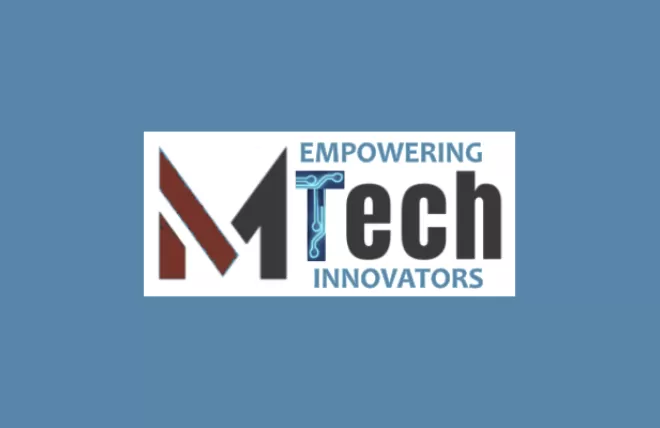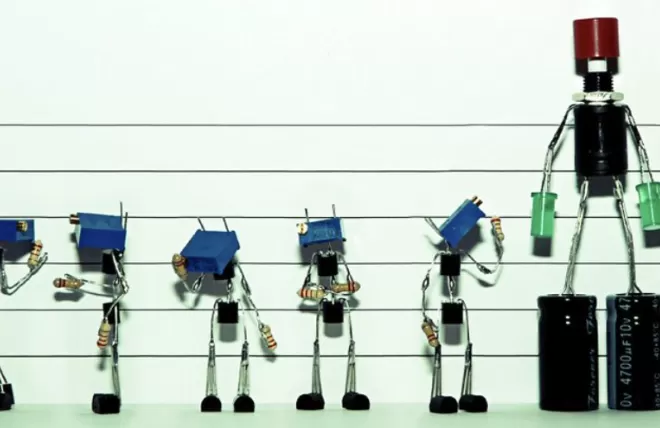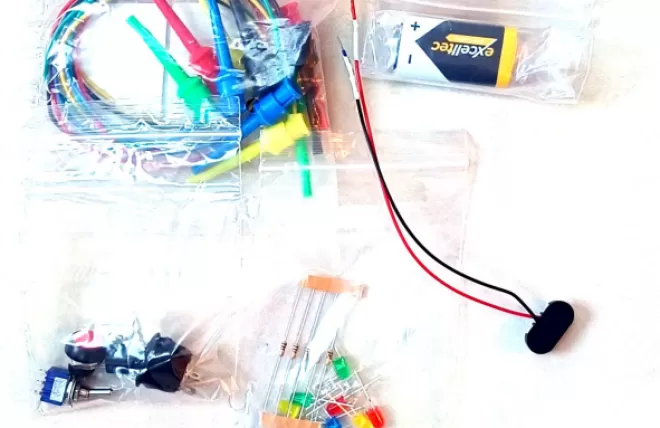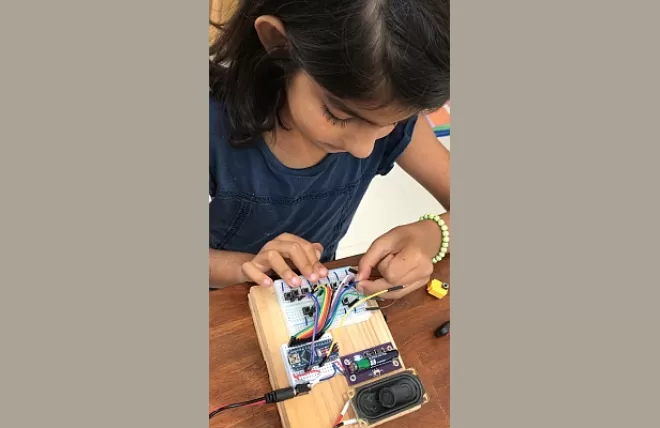Electronics, computing, and applied mathematics are gateway subjects to modern technology.
For young learners, electronics provides an ideal entry point. It is practical, with manipulables. It is easy to see cause and effect. With the right equipment and approach, exploring electronics can begin for children as early as 3 years old.
There are many tangible benefits from early learners encountering electronics:
- fine motor skill development, improved dexterity,
- an intuition for how technological things work at a component level,
- building resilience, strengthening a growth mindset,
- raising the threshold of frustration, through trying, persevering, and eventually succeeding,
- stronger focus,
- boosting imagination by incorporating their own creations into play,
- improved self-confidence and self-reliance.

A three year old wiring up his first circuit and joy at seeing the LED light up!
How to make electronics accessible to young learners?
Working with young learners on these topics is a partnership between parent or caregiver and the child. The adult should take on the role of support, helping the child to avoid pitfalls, point out the delights, stay engaged whilst letting the child lead, and allowing the child to figure things out and gently helping when the child has had a chance to really try, try again, and needs a little nudge to get on the right track. With help at hand to keep the momentum going, they can and do comprehend a surprising amount!
Within such a partnership, a child’s natural curiousity is allowed to flourish, and the result is delight for both child and caregiver. Without it, the child may give up in frustration as their basic dexterity and analytical comprehension are insufficient for them to be independent.
There are benefits to young children from participating early in the “maker culture”, and experiencing the wonders that it holds!
How much are young children able to achieve?
This will of course depend on the child as well as the adult partner accompanying them on their learning journey. With an enthusiastic adult and child, the following are possible:
In Electronics:
- A three year-old with adequate motor skills can do basic electronics with supervision (battery, cables, switch, resistor, led/buzzer/dc motor).
- A five year-old can start to use bread-boards for electronics and independently create their own simple circuits.
- A seven year-old can read a simple circuit diagram and wire it up correctly. She/he can use pliers, wire strippers and other electric/hobbyist tools safely.
- An eight-year old can wire up a complex circuit with guidance, using components and a breadboard
In Computing:
- A three year-old can direct a turtle logo using 5 keys (four movement, change color), recognizing and pressing keys to perform desired actions
- A four year-old can independently guide the turtle to draw a pre-described simple object on screen (box, staircase)
- A six year-old can solve harder challenges with the turtle-logo and begin to program the turtle (record/playback)
- A seven year-old can start learning programming with Forth (reading, keyboard use).
- An eight year old can use a computer independently
- A ten year old can work their way through “Starting Forth” relatively independently, and learn Forth using GForth, Notepad++, and Total Commander.
Learn more about our Pre-School & Early Years sessions
For ages 3-4 and ages 5-7, with a parent or adult carer.
Click to find out more!
SIGN UP TODAY!
- Introductory offer: 20% OFF first course
- Sibling & Referral discounts
- Taster sessions can be arranged (space permitting)
- Maximum 6-8 children per session. Reserve your place today!







